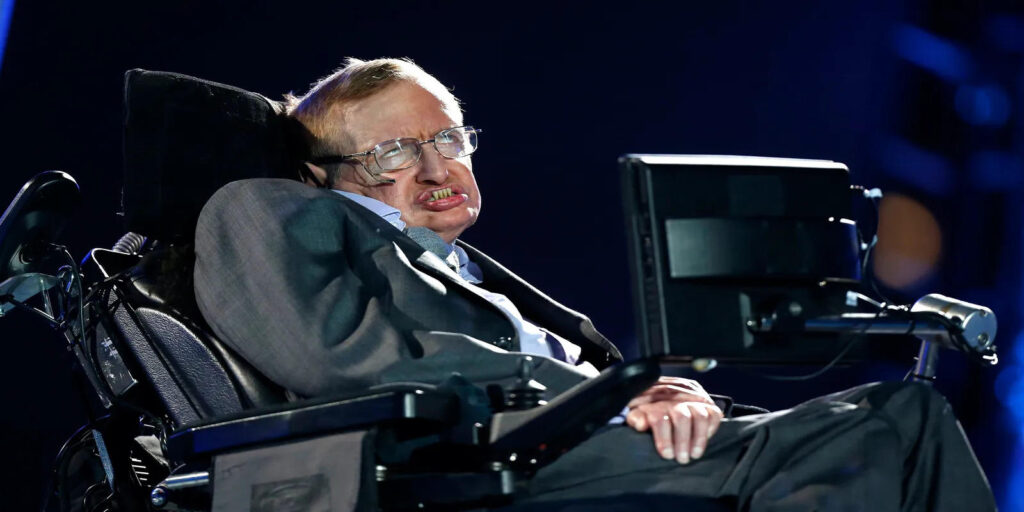There is no God…He created this world and no God runs it…
January 08 is the birthday of the famous physicist Stephen Hawking who said this. He was born in 1942. His life was always full of adversities. But despite his physical disability, he did that work, which is a milestone for the whole world. He explained the theory of black holes for the first time. And along with copper eighty saath, which used to surprise people. And how did all his words stand on the basis of science? He was an atheist, did not believe in any religion. However, most of the scientists in the world do not believe in God. But if we talk about Stephen Hawking, what was the reason for his belief? Hawking, considered one of the most brilliant scientists of his generation, lived for 76 years. He died in March 2018. He spent most of his life in a wheelchair. He could not speak. For this they took the help of special machines through which they used to communicate.
He remained mentally active till the end. He was working on a book when he died. Then his family members completed and published this book. His last book is titled “Brief Answers to the Big Questions”, which is a best seller. Hawking is credited with many major discoveries related to space. He wrote many books. Regarding God, he always believed that there is no such thing as God. In his last book he explained in detail why there is no such thing as God.
In this book he clearly said, there is no God. No one created the universe. No one directs our destiny. There is no heaven and no life after death. Belief in reincarnation is just wishful thinking. There is no reliable evidence of this. When we die, we return to the dust. Stephen Hawking’s last book “Brief Answers to the Big Questions” is a collection of 10 big questions and their answers, which Hawking was constantly asked throughout his life. The book begins with the question – Is there a God?
He wrote in the book, For centuries it was believed that disabled people like me were living under a curse given by God. Maybe this is wrong. I like to think that everything can be explained in different ways according to the laws of nature. If you believe in science, as I do, you believe that there are certain rules that are always followed. There is no proof of God, it is just a definition. We do not need a God to explain the universe, he wrote. Nature has its own laws and they work that way. Unlike laws made by humans, the laws of nature cannot be broken – that’s why they are so powerful. These also become controversial when seen from a religious perspective. He also did not believe that the universe and the world were created by God. Despite accepting the laws of nature, Hawking believed that according to the laws of science, the universe spontaneously formed from nothing.
Einstein often talked about religion but did not believe in any personal God. However, he was not an atheist either. He liked to call himself an agnostic. He was inclined toward the pantheism of the Jewish-Dutch philosopher Baruch Spinoza, who in the 17th century had declared that God is identical with nature.
Based on available sources, scientists who do not believe in God include a large number of prominent figures. Among top naturalists, disbelief in God and immortality is widespread, with transcendentalism almost unanimously rejected by naturalists of the National Academy of Sciences (NAS). Disbelief in God and immortality is highest among NAS biological scientists. The percentage of disbelief in God among physicists and astronomers is very high. Among NAS biological scientists, 65.2% and 69.0% express disbelief in God and immortality, respectively, while among NAS physical scientists the disbelief in God and immortality is 79.0% and 76.3%, respectively. A survey conducted by the Pew Research Center in 2009 showed that 41% of scientists do not believe in God or a higher power, which is in sharp contrast to the general public, where only 4% do not believe in God.
God may be an eternal cosmic entity distinct from humanity who is responsible for the infinity of space, the nature of the deepest common substance of matter and energy, perpetual motion. This definition sees God as an eternal cosmic intelligence that works through the Spirit of the diversity of life in our universe.
